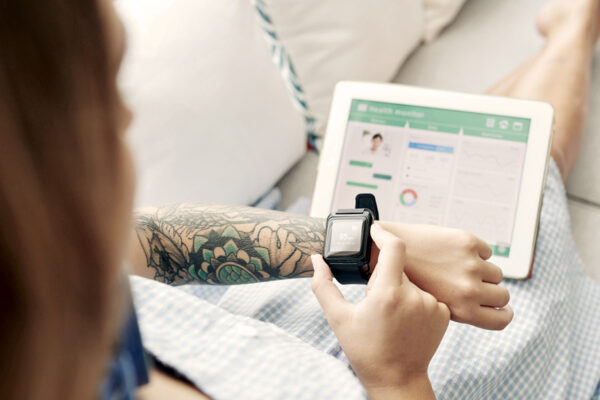Assistive technologies are transforming the lives of individuals with cognitive disabilities by providing invaluable support for managing their well-being. These technologies, when combined with health monitoring features, offer an extra layer of care, helping individuals with cognitive challenges to lead healthier, safer lives. In this blog post, we will explore the significance of assistive technologies and health monitoring for cognitive disabilities and provide guidance on how to effectively use these tools to enhance well-being.
Understanding Cognitive Disabilities
Cognitive disabilities encompass a broad spectrum of conditions that impact cognitive functions such as memory, attention, problem-solving, and language skills. These disabilities can result from various factors, including developmental disorders, acquired brain injuries, neurodegenerative diseases, and more. Conditions like autism spectrum disorders, attention deficit hyperactivity disorder (ADHD), and traumatic brain injuries (TBI) are common examples of cognitive disabilities.
Challenges Faced by Individuals with Cognitive Disabilities
Living with cognitive disabilities can present numerous challenges that affect an individual’s well-being. These challenges may include difficulties with:
- Memory and Organization: Struggles with remembering important tasks, medication schedules, and appointments.
- Communication: Difficulty in expressing needs and understanding instructions, affecting overall health management.
- Safety Concerns: Increased vulnerability to accidents, falls, and emergencies.
- Medication Management: Challenges in adhering to prescribed medications and treatment plans.
The Role of Assistive Technologies and Health Monitoring
Assistive technologies have been instrumental in addressing these challenges and supporting individuals with cognitive disabilities. By incorporating health monitoring features, these technologies contribute to overall well-being in the following ways:
- Memory Aids: Assistive devices and apps can provide reminders for taking medications, attending medical appointments, and managing daily routines.
- Communication Support: Augmentative and alternative communication (AAC) devices help individuals express their health needs and understand medical instructions.
- Safety Features: Fall detection and emergency calling capabilities provide immediate assistance in case of accidents or health emergencies.
- Medication Management: Apps and devices can help individuals keep track of their medications and dosage schedules.
Using Assistive Technologies and Health Monitoring
Here’s how individuals with cognitive disabilities can effectively use assistive technologies and health monitoring tools to improve their well-being:
- Medication Management:
- Utilize medication reminder apps: Set up reminders on smartphones or tablets to prompt medication intake.
- Explore medication management devices: Invest in pill dispensers that provide audible or visual alerts when it’s time to take medication.
- Daily Routines and Appointments:
- Set up calendar and task reminder apps: Use digital calendars with notifications to keep track of appointments, tasks, and daily routines.
- Opt for voice-activated assistants: Devices like smart speakers can help you set up and manage daily schedules with voice commands.
- Communication Support:
- AAC Devices: Consider using AAC devices, including speech-generating devices, apps, or communication boards to facilitate effective communication with healthcare providers and caregivers.
- Safety and Emergency Response:
- Wearable emergency alert systems: Explore wearable devices equipped with fall detection and emergency call features that can connect you to help when needed.
- In-home emergency response systems: Install home-based systems that allow you to call for assistance in case of emergencies.
- Health Monitoring:
- Smartwatches with health features: Use smartwatches with built-in heart rate monitoring, blood oxygen measurement, and fall detection to track and manage your health.
- Mobile health apps: Install health apps on your smartphone to monitor and log health data, such as physical activity, sleep, and nutrition.
- Customization and Accessibility:
- Customize settings to meet individual needs: Adjust assistive technologies and health monitoring apps to accommodate sensory sensitivities and cognitive preferences.
Assistive technologies and health monitoring tools have the power to significantly improve the well-being of individuals with cognitive disabilities. By incorporating these technologies into daily routines and health management, individuals can enhance their independence, safety, and overall quality of life. As technology continues to advance, individuals with cognitive disabilities can look forward to even more innovative and inclusive features that cater to their diverse needs. In a world where well-being and independence are paramount, these technologies are vital tools, offering newfound opportunities for individuals to thrive on their terms.
What is next?
In our next installment, we will delve into assistive technologies and Smartwatches ( Fitbit Sense ) for Cognitive disabilities.
For more information on why accessibility is important in general, you can check out my previous blog post here.
For further information on how In our next installment, we’ll explore the importance of captions for individuals with hearing disabilities and delve into how we can promote digital products using captions with semantic markup to enhance accessibility for those with hearing impairments.to make your product accessible to your audience, contact our experienced design experts, check out our Accessibility IQ for your website, download our guide Digitally Accessible Experiences: Why It Matters and How to Create Them, and read more from our UX for Accessible Design series.

